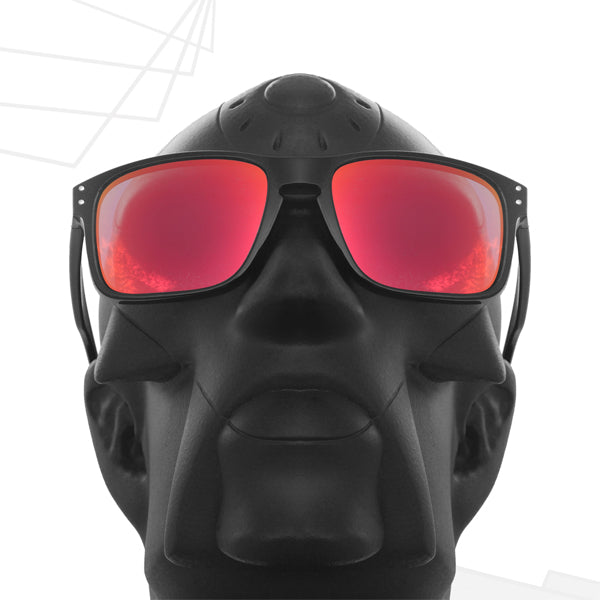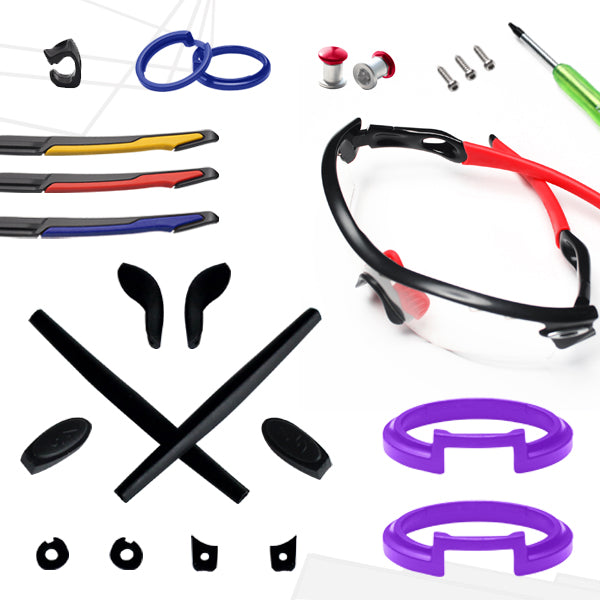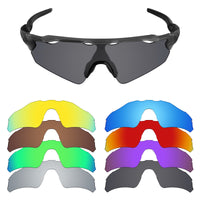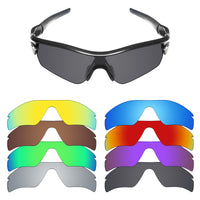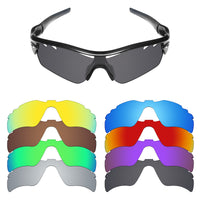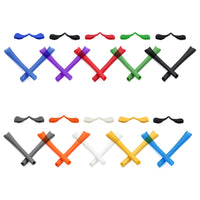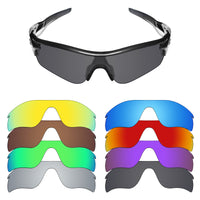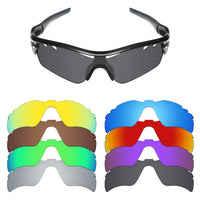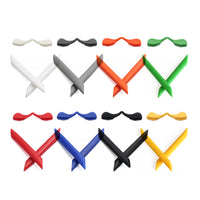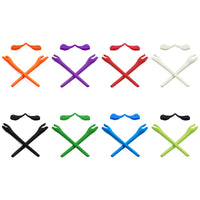-
Shop
Sunglass Replacement LensesFeatured Brands
- For Wiley X
- For Oakley
- For Arnette
- For Bolle
- For Costa Del Mar
- For Dragon The Jam
- For Electric
- For Maui Jim
- For Nike
- For Ray-Ban
- For Revo
- For Rudy Project
- For Smith
- For Spy Optic
- For Von Zipper
AccessoriesWhat's Hot- Rubber Kits
- Sunglass Parts
- Screws & Screwdrivers
- Eyeglass Parts
- Cleaning & Storage
- Search
- Accessories
-
LensesHOT
Top Sunglass ModelsFit for Oakley
- Antix
- Batwolf
- Bottle Rocket
- Crossrange
- EVZero Path
- Fives Squared
- Flak 2.0 XL
- Flak Jacket XLJ
- Frogskins
- Frogskins Lite
- Fuel Cell
- Gascan
- Half Jacket 2.0
- Holbrook
- Jawbreaker
- Latch
- Mainlink
- Oil Rig
- Racing Jacket
- Radar EV Path
- Radar Path
- Si Ballistic Det Cord
- Sliver
- Tailend
- Thinlink
- Turbine
- Turbine Rotor
- Twoface
- Twoface XL
New Arrival - PrescriptionNEW
-
Accessories
-
Contact Us
Introduction:
Eyeglasses are essential for many people with vision problems. Choosing the right type of lenses is crucial for achieving clear vision and comfortable wear. When it comes to eyeglass lenses, two popular materials are polycarbonate and glass. Both materials have their advantages and disadvantages, and choosing between them can be challenging. In this article, we will explore the features and differences between polycarbonate and glass lenses and help you decide which one is the best fit for your eyes.
Pros and Cons of Polycarbonate Lenses
Polycarbonate lenses were first developed in the 1970s for aerospace applications and have since become a popular choice for eyeglasses due to their impact resistance and lightweight properties.
Here are some of the advantages of polycarbonate lenses:
- Impact Resistance: Polycarbonate lenses are highly impact-resistant, making them a great choice for people who work or play in environments where eye safety is a concern. They are virtually unbreakable and can withstand even the most severe impacts without shattering.
- Lightweight: Polycarbonate lenses are up to 30% thinner and lighter than regular plastic or glass lenses, making them more comfortable to wear for extended periods of time.
- UV Protection: Polycarbonate lenses offer 100 percent protection from the sun's harmful UV rays, making them an excellent choice for outdoor activities.
- Versatility: Polycarbonate lenses can accommodate strong prescriptions without adding too much bulk. They are also available in a wide range of tints and coatings, including polarized and anti-reflective options.
Disadvantages of Polycarbonate Lenses:
- Scratches: While polycarbonate lenses are highly impact-resistant, they are also prone to scratching. To prevent scratches, it is important to treat them with care and avoid using harsh chemicals or abrasive materials when cleaning them.
- Cost: Polycarbonate lenses are typically more expensive than regular plastic lenses, which may make them a less attractive option for some people.
Pros and Cons of Glass Lenses
Glass lenses have been around for centuries and remain a popular choice for eyeglasses due to their clarity and scratch-resistance. Here are some of the advantages of glass lenses:
- Clarity: Glass lenses provide exceptional clarity and optical quality, making them an excellent choice for people who need to see fine details or have a high prescription.
- Scratch Resistance: Glass lenses are highly scratch-resistant, making them more durable and long-lasting than many other lens materials.
- Cost: Glass lenses are typically less expensive than polycarbonate lenses, which may make them a more attractive option for some people.
Disadvantages of Glass Lenses
- Weight: Glass lenses are heavier and thicker than polycarbonate lenses, which may make them less comfortable to wear for extended periods of time.
- Fragility: Glass lenses are more fragile than polycarbonate lenses and can shatter upon impact, which may make them a less safe option for people who work or play in environments where eye safety is a concern.
- UV Protection: Glass lenses do not offer 100 percent protection from the sun's harmful UV rays, which may make them a less attractive option for outdoor activities.
Polycarbonate vs Glass Lenses: The Differences
- Weight and Thickness:
Polycarbonate lenses are much lighter than glass lenses. According to [3], polycarbonate lenses are thinner and lighter than glass lenses, making them more comfortable to wear for long periods. Glass lenses, on the other hand, are much denser and heavier, making them less comfortable to wear for extended periods.
- Durability:
One of the main advantages of polycarbonate lenses is their durability. Polycarbonate is a highly impact-resistant material, making it an ideal choice for people who need eyeglasses for sports or other high-impact activities. According to [1], polycarbonate lenses were developed in the 1970s for aerospace applications and are currently used for the helmet visors of astronauts and for space shuttle windscreens. Glass lenses, on the other hand, are more fragile and can shatter easily if dropped or hit with a hard object.
- Optical Clarity:
Both polycarbonate and glass lenses provide excellent optical clarity. However, polycarbonate lenses have a higher index of refraction than glass lenses, making them slightly thicker at the center. According to [2], polycarbonate lenses have an index of refraction of 1.58, while glass lenses have an index of refraction of 1.52. This means that polycarbonate lenses are about 10% thinner than glass lenses.
- Cost:
Polycarbonate lenses are generally more expensive than glass lenses. However, the extra cost is often worth it, given the durability and impact resistance of polycarbonate lenses.
Are polycarbonate lenses better than glass lenses?
It depends on your needs. Polycarbonate lenses are more impact-resistant and lighter than glass lenses, making them a better choice for people who need eyeglasses for sports or other high-impact activities. Glass lenses, on the other hand, provide excellent optical clarity and are a good choice for people who need eyeglasses for everyday use.Are polycarbonate lenses worth the extra cost?
If you need eyeglasses for sports or other high-impact activities, then polycarbonate lenses are definitely worth the extra cost. However, if you only need eyeglasses for everyday use, then glass lenses may be a more cost-effective option.
Conclusion:
Choosing the right type of lenses is essential for achieving clear vision and comfortable wear. Polycarbonate and glass lenses are two popular materials for eyeglasses, each with its own advantages and disadvantages. If you need eyeglasses for sports or other high-impact activities, then polycarbonate lenses are the better choice. However, if you only need eyeglasses
Leave a comment

